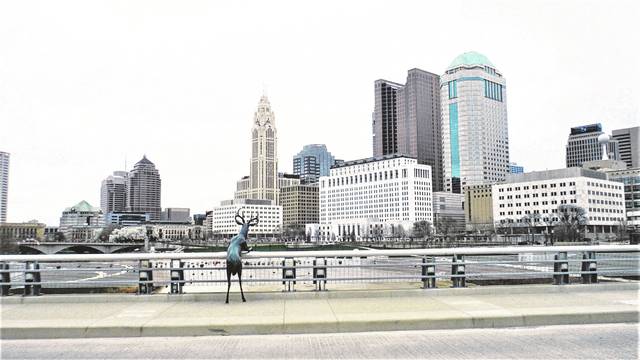

The COVID-19 outbreak is having a huge impact on everything, including economic development in North America. Three city leaders discussed the implications of the coronavirus pandemic on commerce in a webinar last week.
“We’re exhausted and incredibly motivated in our work,” said One Columbus President and CEO Kenny McDonald. “We’re working harder than ever in our roles, trying to help companies in our community.”
McDonald cited the city and state of Ohio’s action to limit attendance at the popular Arnold Sports & Fitness Expo in early March as a response to the infectious disease.
“Columbus took unprecedented action,” McDonald said. “That decision seems like it was a year ago, and a lot of people questioned it at the time. Yet, as each day goes by, that decision looks better. The governor (Mike DeWine) and mayor (Andrew Ginther) took considerable and proactive action to flatten the curve by taking some dramatic actions.”
The diversity of businesses in the 11-county central Ohio region (includes Delaware County) makes it easier to “navigate this crisis,” McDonald said. For example, Battelle and The Ohio State University have recently introduced innovative new tools in the fight against the coronavirus.
“We are finding areas of opportunity in the making of medical products. That being said, our role is more important than ever as economic developers,” McDonald said.
However, assistance in the form of a federal stimulus package is much-needed to keep businesses going and to avoid layoffs and furloughs.
“For our street-level minority business, this help can not come fast enough,” McDonald said. “Employers can use this to bank their payroll for the next 30 to 60 days. Getting the stimulus in the hands of companies, that’s the daily focus, to help our small businesses in a few weeks, I hope. It’s literally day to day.”
Brian McGowan, president & CEO of Greater Seattle Partners in Seattle, Washington, noted during the webinar that his city is ground zero in the United States for the coronavirus.
“We’ve been hit first and hardest,” he said, citing “job losses and a drop from 76% to 18% occupancy at hotels.”
However, Seattle had a fast-growing economy before the outbreak. “With the public and private sector working together by doing telework (working from home), this region has acted boldly,” McGowan said. “Our diversity and our four million people diversity will pull us out of this, even though I know resources are tapped and people are hurting. Any assistance is sorely needed.”
Mike Williams, general manager of the city of Toronto, Ontario, Canada, stated during the webinar that in 2003, Toronto was closed to outsiders due to another pandemic, SARS. Then, as now, Toronto was one of the fastest-growing cities and robust economies in North America.
“We were in a great place until (four) weeks ago,” Williams said. “We have suffered a very significant shock, with a lot of closings and our economy has come to a halt. We have our challenges, and they’re continuing to mount.”
In addition, Canada has had to close its border with the United States, which “chased all the snowbirds back.”
Williams said Toronto learned some economic lessons from SARS. For example, its hotels gave deep discounts to draw back customers, but it took longer for prices to eventually stabilize. He also said not to start promoting recovery too early, because there could be a second wave of cases.
“The most important economic action is a health action, and that is to get this pandemic over with, and the best way to do that is to practice social distancing and hand-washing hygiene,” Williams said.
The media-only March 26 webinar was hosted by Development Counsellors International (DCI) and the International Economic Development Council (IEDC).
“Every city can identify,” said Julie Curtin, president of DCI. “The stimulus package may help ride the tide. These are tough times with more to come. We’re hopeful for the days ahead.”
“I would refer people to www.restoreyoureconomy.org,” said Jeff Finkle, president & CEO of IEDC. “It’s updated with lots of data to help communities deal with this COVID virus.”



